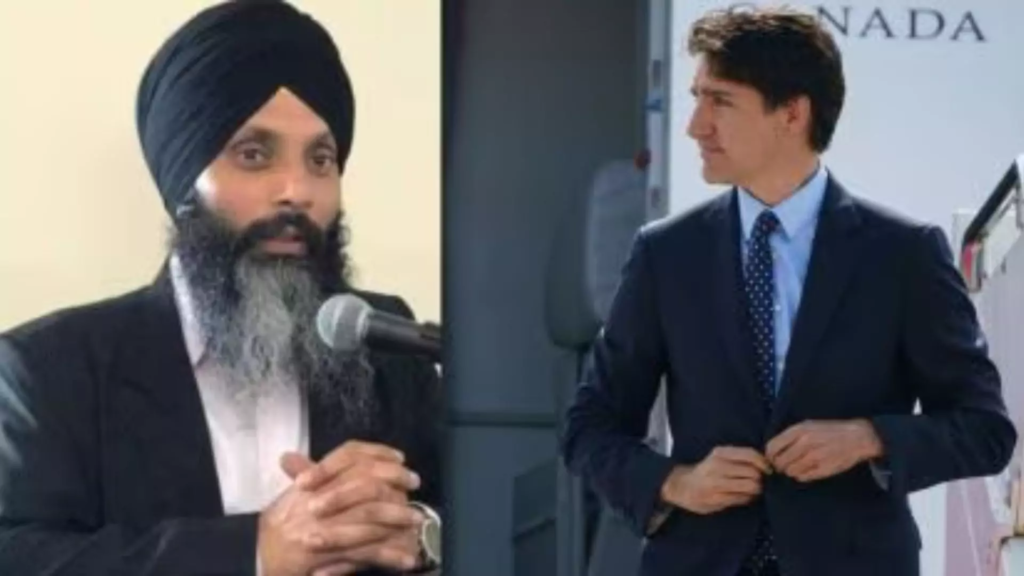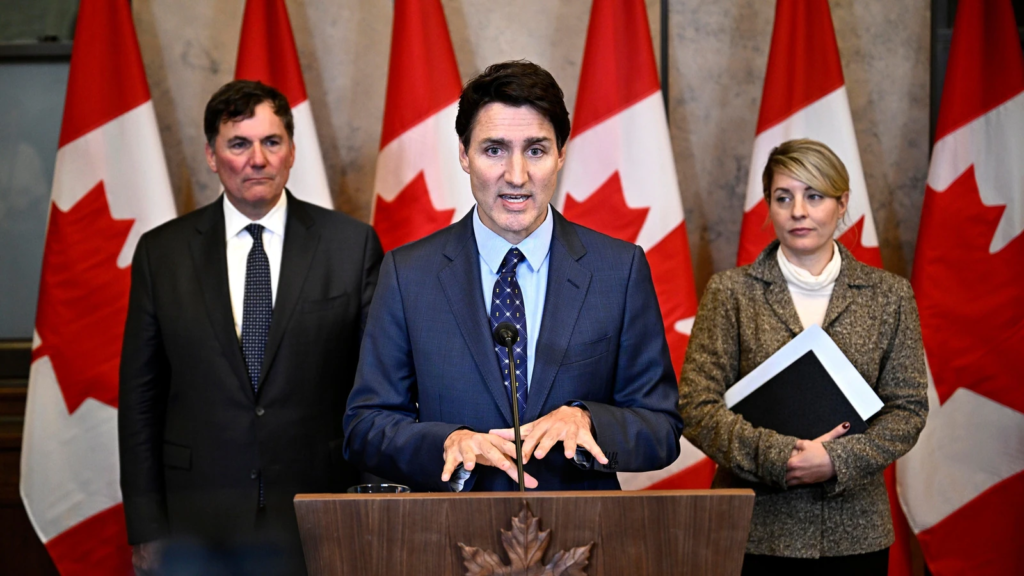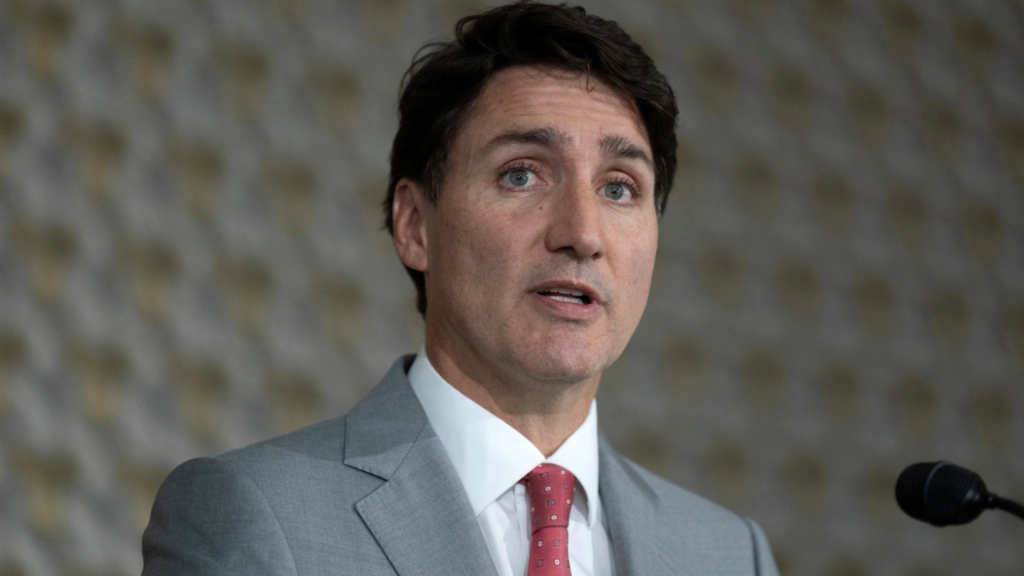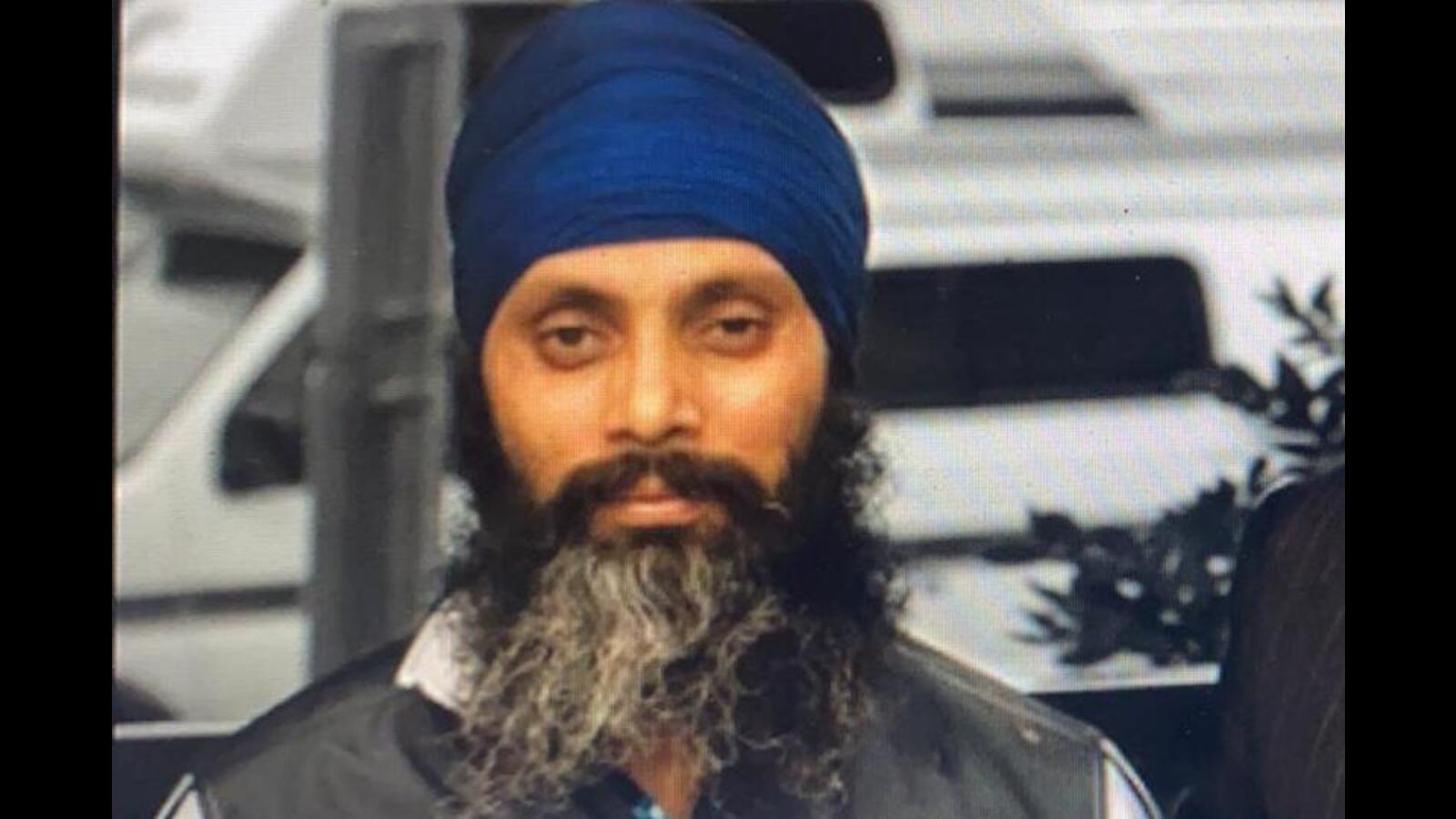In a recent development that has further strained India-Canada relations, Maxime Bernier, the leader of the People’s Party of Canada (PPC), has openly criticized Prime Minister Justin Trudeau’s handling of allegations surrounding the murder of Hardeep Nijjar.
Bernier’s sharp remarks have raised eyebrows as he dismisses the notion that Nijjar was a legitimate Canadian citizen, labeling him a “foreign terrorist” instead. The controversy has ignited an intense debate, not only about Nijjar’s background but also about Trudeau’s broader foreign policy and its implications for Canada’s relationship with India.
Questioning Justin Trudeau’s Motives
Maxime Bernier has voiced his concerns regarding the allegations made by Justin Trudeau’s government about the involvement of Indian diplomats in the murder of Hardeep Singh Nijjar. The accusations claim that the Indian government may have played a role in Nijjar’s death, an assertion that has heightened tensions between Canada and India.
However, Bernier has cast doubt on the credibility of these claims, emphasizing that the Canadian government has not yet provided any concrete evidence to back these allegations.
Read : Canada PM Trudeau Admits He Had No Hard Evidence Linking India to Nijjar’s Killing
Bernier’s skepticism goes beyond the lack of evidence; he believes that Trudeau may be using this international crisis to shift attention away from domestic controversies. In his statement on X (formerly Twitter), Bernier noted that while the allegations are serious, Trudeau’s government has yet to offer any proof of India’s involvement.
Read : Canada’s Spy Chief Secretly Visited India Twice This Year to Probe Nijjar’s Assassination
Bernier added, “So far however, we haven’t been given any proof. And Trudeau is clearly using this crisis to divert the attention from other controversies.” The accusation that Trudeau might be leveraging this diplomatic row to sidestep other issues has added another layer of complexity to the ongoing debate.
According to Bernier, if the allegations against Indian diplomats are proven true, they must be addressed decisively. Yet, in the absence of hard evidence, Bernier warns against hastily jeopardizing Canada’s relationship with India, which is a vital global player and an important ally.
He advocates for a more measured approach, urging the Trudeau government to avoid escalating tensions unnecessarily.
Hardeep Nijjar’s Citizenship Controversy
One of the central figures in this controversy is Hardeep Singh Nijjar, a pro-Khalistan activist who was murdered in June 2023. While Trudeau’s government has painted Nijjar as a Canadian citizen whose assassination may have been politically motivated, Bernier has pushed back on this characterization.
He claims that Nijjar was not a Canadian but rather a foreign terrorist who exploited Canada’s asylum system to remain in the country.
Bernier has highlighted that Nijjar’s asylum claims were repeatedly rejected after he first sought refuge in Canada in 1997, using fraudulent documents to bolster his case. Despite these rejections, Nijjar was allowed to stay in Canada and eventually became a naturalized citizen in 2007.
“One myth should be dispelled though: That the central figure in this controversy, Hardeep Singh Nijjar, the Khalistani militant who was murdered last year, was a Canadian,” Bernier wrote.
He argues that granting Nijjar citizenship was an administrative error that should have been corrected years ago, advocating for the possibility of posthumously revoking his Canadian citizenship to rectify the mistake.

Bernier went further to say that Nijjar should have been deported after his initial asylum claim was rejected, instead of being allowed to remain in the country. He criticized Canada’s immigration policies for enabling what he described as “fake asylum claims,” adding that hundreds of thousands of claimants in similar situations continue to reside in Canada.
This has been a point of contention in Canadian politics, as concerns about the nation’s asylum and immigration policies have been mounting in recent years.
Bernier’s proposal to strip Nijjar of his citizenship, even after his death, has sparked debate about the efficacy and fairness of Canada’s immigration and asylum system. His remarks are seen by some as a call to tighten immigration policies, while others view them as inflammatory rhetoric aimed at exacerbating anti-immigrant sentiments.
Broader Implications for Canada-India Relations
The fallout from the Nijjar controversy is not just limited to domestic politics; it has far-reaching implications for Canada’s international relationships, particularly with India. Bernier has been vocal about the need to avoid risking Canada’s relationship with India over what he sees as dubious allegations.
He argues that Canada has a long history of involving itself in the tribal conflicts of other nations by welcoming refugees and asylum seekers without due diligence. According to Bernier, this has created an environment in which foreign conflicts are imported into Canada, complicating the country’s diplomatic and national security landscape.
“All this is happening because Canada has for decades deliberately invited these foreigners and their tribal conflicts into our country,” Bernier wrote. He believes that instead of escalating tensions with India, the Trudeau government should work more collaboratively with New Delhi to resolve these issues.
Bernier’s stance suggests a more pragmatic approach to foreign relations, one that prioritizes long-term alliances and practical cooperation over short-term political gains.
India has been steadfast in its denial of any involvement in Nijjar’s killing, dismissing Canada’s allegations as “baseless.” The Indian government has also pointed to Canada’s failure to act on requests to extradite individuals accused of terrorism and other serious crimes, further straining diplomatic ties.

Meanwhile, Canada’s allies in the Five Eyes intelligence-sharing alliance—including the US, UK, and Australia—have expressed support for Ottawa’s investigation into the alleged Indian involvement in Nijjar’s death. They have called on India to cooperate fully with the investigation, adding to the diplomatic pressure on New Delhi.
The diplomatic standoff comes at a time when both Canada and India have significant stakes in maintaining a positive relationship. India, with its rapidly growing economy and global influence, is a crucial partner for Canada in terms of trade, investment, and geopolitics.
Likewise, Canada is home to one of the largest Indian diasporas in the world, making the relationship between the two nations complex and multi-faceted.
The Role of Sikhs for Justice and Khalistani Separatism
Another figure who has emerged in this controversy is Gurpatwant Singh Pannun, the general counsel for the secessionist group Sikhs for Justice (SFJ). The SFJ advocates for the creation of an independent Khalistan state for Sikhs and has been designated as a terrorist organization by the Indian government.
Pannun has confirmed that he has communicated with Justin Trudeau’s office in recent years, adding another layer of intrigue to the controversy.
In an interview with the Canadian Broadcasting Corporation (CBC), Pannun disclosed that the SFJ had engaged with Trudeau’s office regarding alleged espionage activities by India within Canada. While the details of these communications remain unclear, the revelation has fueled speculation about the extent to which the Canadian government may have been aware of or even involved in Khalistani separatist activities on Canadian soil.
India has long accused Canada of turning a blind eye to the activities of Khalistani separatists, many of whom reside in Canada and advocate for the creation of a separate Sikh state in India’s Punjab region.
The Indian government has repeatedly expressed concerns that Canada is allowing its territory to be used as a base for anti-India activities, a claim that Ottawa has consistently denied. The Nijjar controversy has brought these tensions to the forefront, with both sides digging in their heels.

Pannun’s involvement further complicates the issue, as his group has been at the center of India’s accusations against Canada. While Pannun has denied any involvement in Nijjar’s murder, his group’s separatist agenda has been a constant source of tension between Canada and India.
The controversy surrounding Hardeep Singh Nijjar’s murder and the subsequent diplomatic fallout between Canada and India has brought a number of critical issues to the forefront. Maxime Bernier’s assertions that Nijjar was a “foreign terrorist” rather than a legitimate Canadian citizen have ignited a heated debate about Canada’s immigration policies, its foreign relations, and the potential consequences of Trudeau’s handling of the crisis.
As the situation continues to unfold, the broader implications for Canada-India relations remain uncertain. Both nations have much to gain from cooperation, but the political stakes on both sides are high. Whether Trudeau’s government can navigate these choppy waters without further damaging ties with India remains to be seen.
What is clear, however, is that this controversy has opened up a wider discussion about Canada’s role on the global stage and the challenges of balancing domestic policies with international diplomacy.

